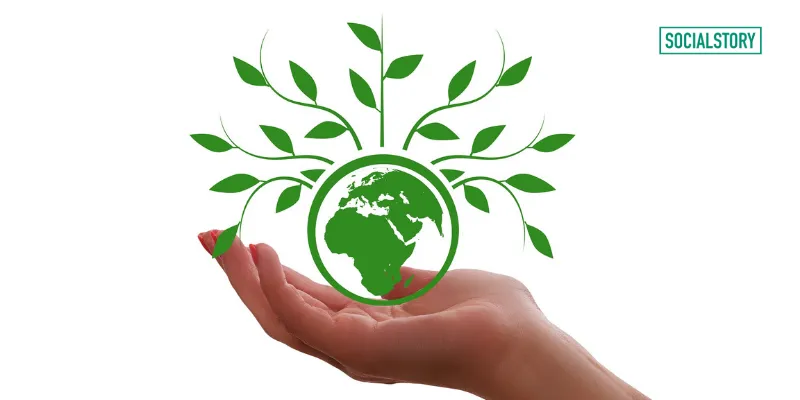[Budget 2022] Focus on sustainability as India gears up for further urban and rural development
In the Union Budget 2022, Finance Minister Nirmala Sitharaman put the focus on facilitating urban and rural development through sustainable measures.
As a part of the Union Budget 2022, Finance Minister Nirmala Sitharaman announced various measures to promote energy efficiency and sustainability in the country.
The Minister points out that by the time of India at 100, nearly half of the country's population is likely to be living in urban areas.
“To prepare for this, orderly urban development is of critical importance. This will help realise the country’s economic potential, including livelihood opportunities for the demographic dividend. For this, on the one hand, we need to nurture the megacities and their hinterlands to become current centres of economic growth,” she says.
For urban capacity building, support will be provided to the states. Modernisation of building bye-laws, Town Planning Schemes (TPS), and Transit Oriented Development (TOD) will be implemented. This will facilitate reforms for people to live and work closer to mass transit systems.
She also spoke about the need to facilitate Tier II and III cities to take on the mantle in the future.
For this to happen, urban planning cannot continue with a business-as-usual approach. We plan to steer a paradigm change.

A high-level committee of reputed urban planners, urban economists and institutions will be formed to make recommendations on urban sector policies, capacity building, planning, implementation and governance. Urban Planning Support to States.
“We will promote a shift to the use of public transport in urban areas. This will be complemented by cleantech and governance solutions, special mobility zones with zero fossil-fuel policy, and EV vehicles,” Sitharaman says, further mentioning the ‘Battery Swapping Policy’.
This is brought out to encourage private sector to develop sustainable and innovative business models for ‘Battery or Energy as a Service’.
PM Gati Shakti masterplan
With support to sustainable development and economic growth, Sitharaman announced the Gati Shakti 'master plan' to make world-class infrastructure. The approach is driven by seven engines, namely, Roads, Railways, Airports, Ports, Mass Transport, Waterways, and Logistics Infrastructure.
Launched last year by the Prime Minister, PM Gati Shakti is where all seven engines will pull forward the economy in unison. These engines are supported by the complementary roles of Energy Transmission, IT Communication, Bulk Water and Sewerage, and Social Infrastructure. Finally, the approach is powered by Clean Energy and Sabka Prayas – the efforts of the Central Government, the state governments, and the private sector together – leading to huge job and entrepreneurial opportunities for all, especially the youth.
The projects pertaining to these seven engines in the National Infrastructure Pipeline will be aligned with PM Gati Shakti framework.
"The scope of PM Gati Shakti National Master Plan will encompass the seven engines for economic transformation, seamless multimodal connectivity and logistics efficiency. It will also include the infrastructure developed by the state governments as per the Gati Shakti Master Plan. The focus will be on planning, financing including through innovative ways, use of technology, and speedier implementation," Finance Minster says.
Facilitating climate change
Finance Minister spoke about how green energy and clean mobility systems such as Artificial Intelligence, Geospatial Systems and Drones, Space Economy, Genomics and Pharmaceuticals have immense potential to assist Sustainable Development at scale and modernise the country.
They provide employment opportunities for our youth and make Indian industry more efficient and competent. support to policies, light touch regulations, she says.
To ensure this, facilitative actions to build domestic capacities, and promotion of research and development is needed to guide the government's approach for R&D in the sunrise opportunities
She further elaborated, “As the Hon'ble Prime Minister said at the COP26 summit in Glasgow last November, “what is needed today is mindful and deliberate utilisation, instead of mindless and destructive consumption.” The low carbon development strategy as enunciated in the ‘panchamrit’ that he announced is an important reflection of our government’s strong commitment towards sustainable development.”
The risks of climate change are the strongest negative externalities that affect India and other countries, she added.
This strategy is aimed at generating huge employment opportunities and taking the country on a sustainable development path.

![[Budget 2022] Focus on sustainability as India gears up for further urban and rural development](https://images.yourstory.com/cs/5/604090802d6d11e9aa979329348d4c3e/ImageFramesSaheli-1643707544952.png?mode=crop&crop=faces&ar=2%3A1&format=auto&w=1920&q=75)
![[Budget 2022] Centre bats for digitisation of agriculture sector, launches agritech fund](https://images.yourstory.com/cs/2/f49f80307d7911eaa66f3b309d9a28f5/Featureimages-newdeck26-1643696907331.png?fm=png&auto=format&h=100&w=100&crop=entropy&fit=crop)
![[Budget 2022] Finance Minister announces Digital University, PM eVidya scheme expansion](https://images.yourstory.com/cs/2/bc14afb0357911eca2270b39b804102d/Featured-image-01-1643690877128.png?fm=png&auto=format&h=100&w=100&crop=entropy&fit=crop)




